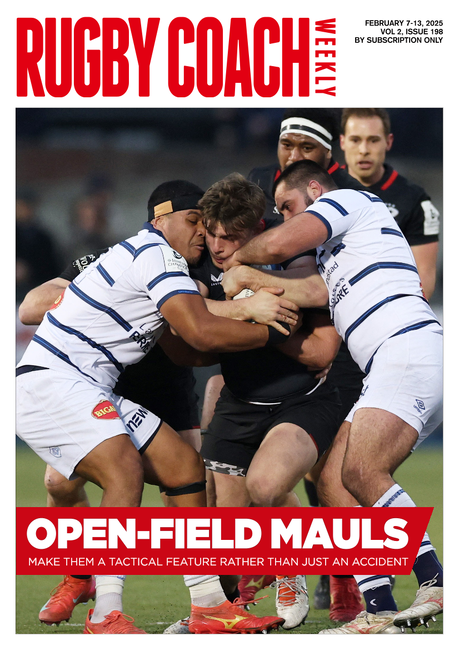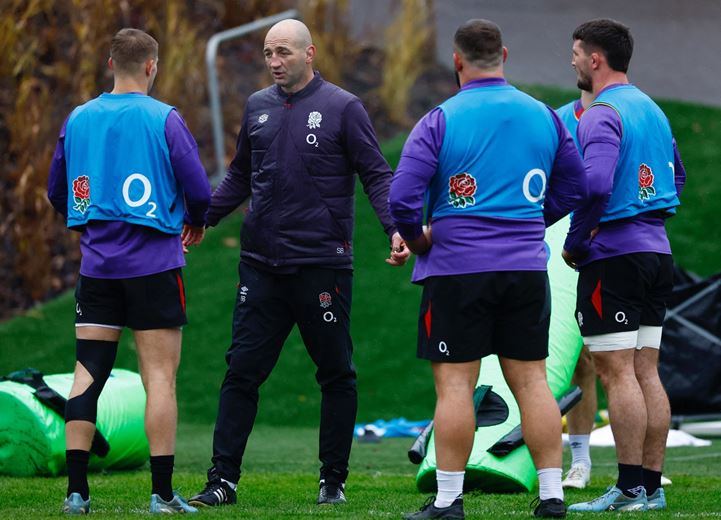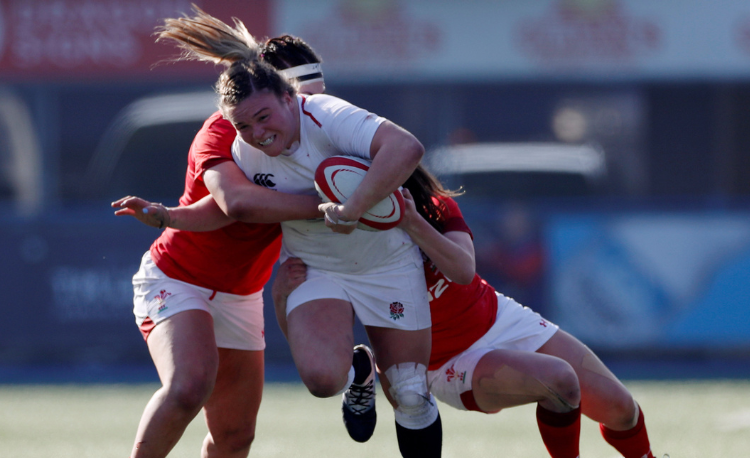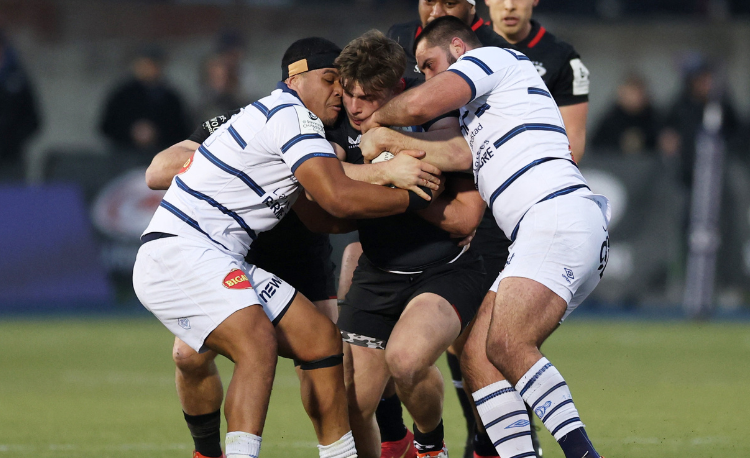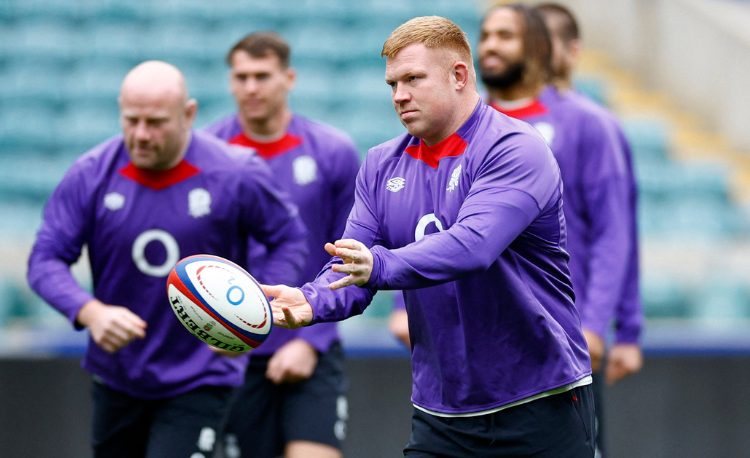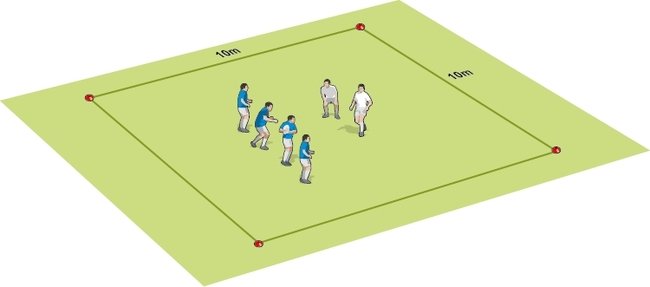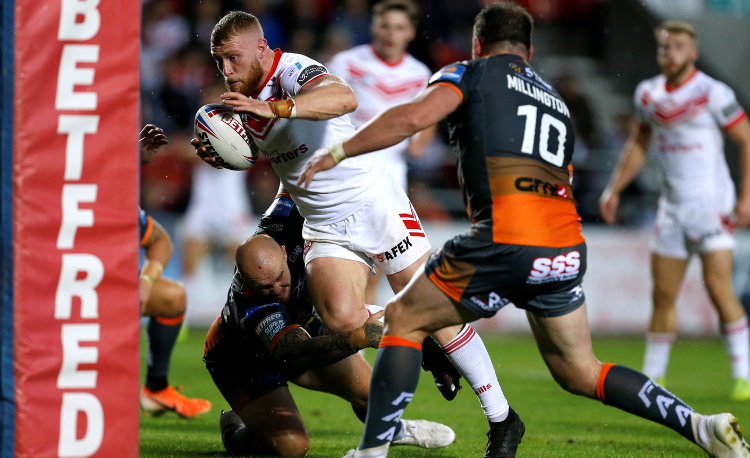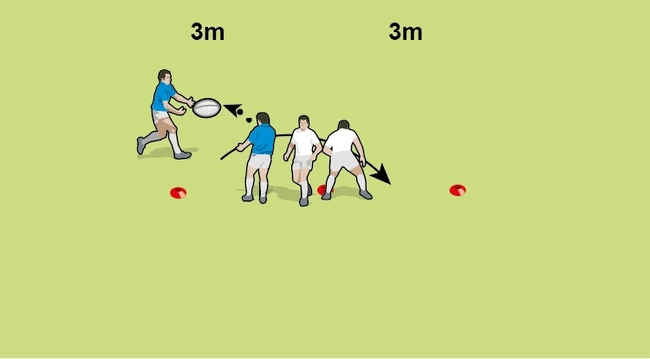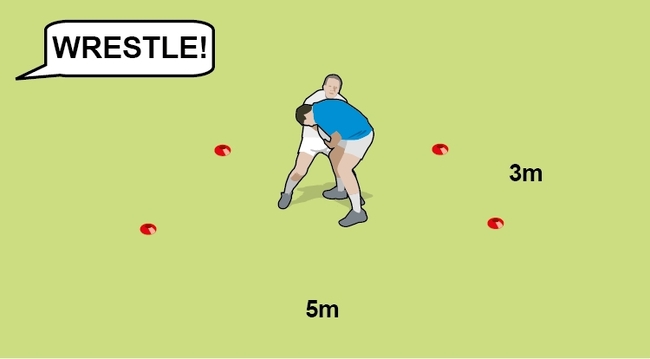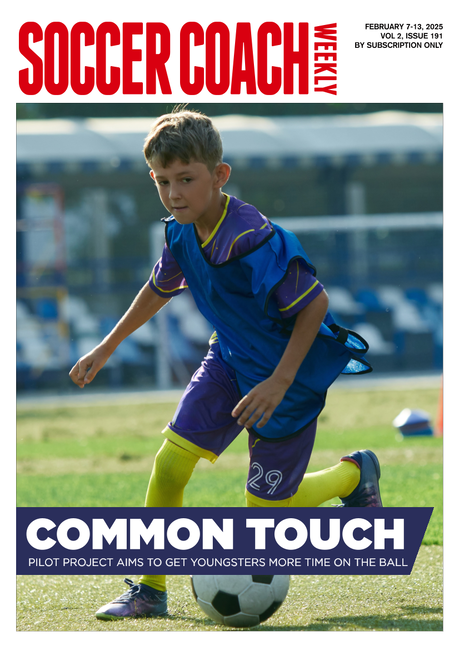RTP: Sports Day competitions at training
In Return to play needs more winning and competition, we discussed that competition plays an integral part in developing players whether we approve of it or not. In our current RTP environments, it might be missing. We gave the example of using intrasquad/interclub tournaments as a way of encouraging some competition in our sessions.
In this article, we are going to discuss another way of creating competition, a Sports Day with our players as competitors.
A 'Sports Day' gives us the perfect opportunity:
We can also use Sports Day to test our player's skills. For example, how many times can a player hit a target with a pass in a minute. As long as you can think of a way to introduce a competitive element, almost any skill can be used.
Be sure to ask players on how they can improve their performance in any activity they carry out. Tie in the desire to compete with the desire for self-improvement.
Let's run through a six 'event' sports day. You might choose to run each event at the same time in small groups, or have different stations running different events at each time.
Make sure you record results from each event and crown a Champion of each and if you so choose, an overall Champion.
One of the most useful events you can do is to test the overall fitness of your players is to run a 20m beep test. You can compare the results against normative results for your age group.
Click here to find a score sheet.
Set out two lines of cones 20 metres apart then find a copy of a 20m beep test.
open.spotify.com/artist/54MkFWnHaqa1uWsHMpCmAy
Either use a speaker to play the test or as a coach blow the whistle on the beeps to mark when players should start the next leg.
If players fail to make it to the line ahead of the next leg, warn them they need to make it next time. If they fail to make it to the line twice, withdraw them and make a note of the level they achieved. The Champion is the player who reaches the highest level.
This will give you a good indication of the level of fitness within your team. Generally speaking, the more intensely you wish to play, the higher your level of fitness needed.
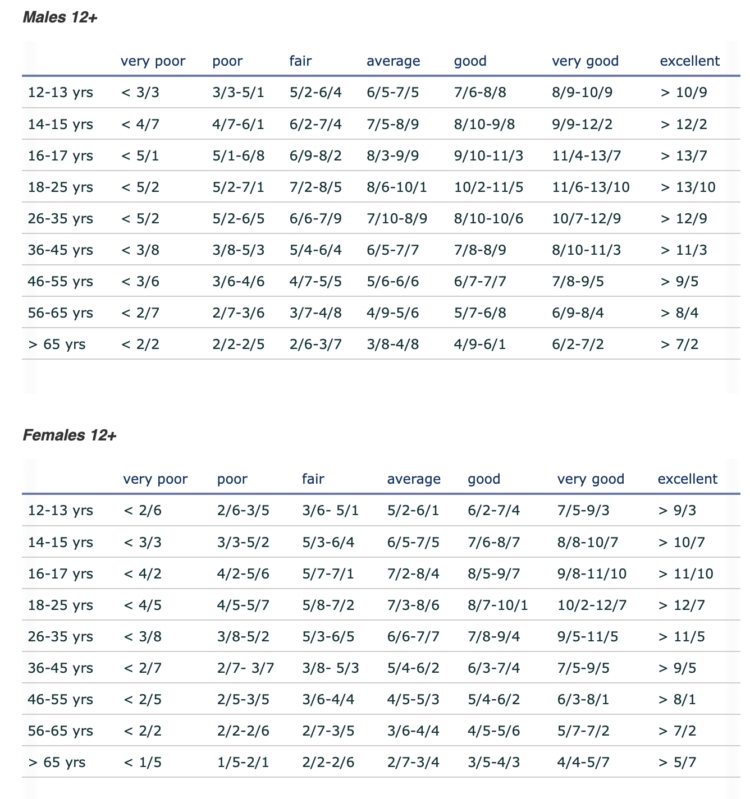
Using a Winter Olympics classic, players will need to make accurate passes toward targets while also keeping on their toes to complete the challenge as quickly as possible.
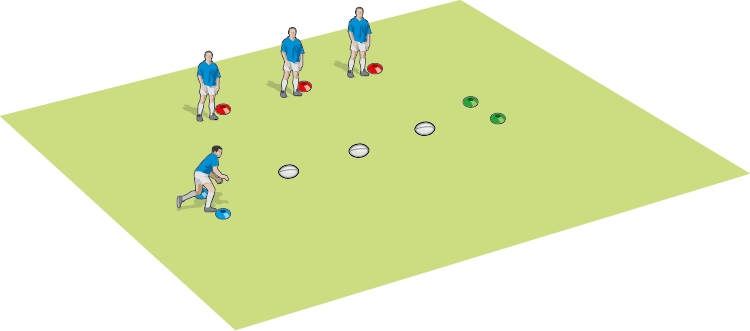
Set up 3-5 balls on the ground with a player stood parallel to each ball.
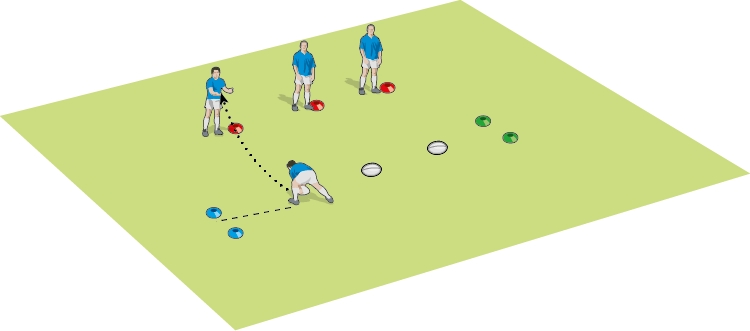
The passer will then run up to each ball and pass it to the player standing parallel the ball. Choose the distance of the receiver to the ball and the type of pass used to suit your players.
Time how long it takes each player to complete the number of passes while giving penalty seconds for poor passes. Ideally, you'll complete this both ways to let passers work off both hands.
The Champion is the player who completes the passes in the quickest time.
A test of the accuracy of the kicking of players, adjusting the distances to suit your players.
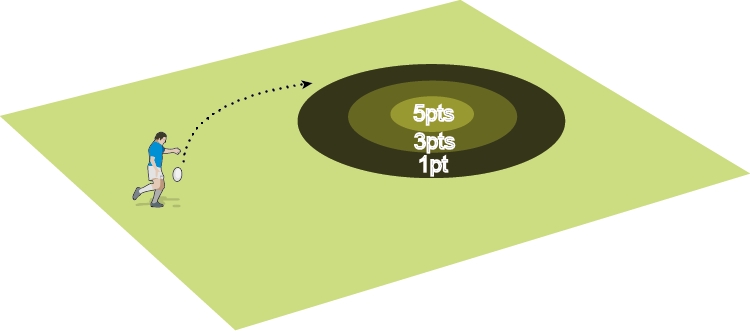
Set up 3 rings of cones, a bullseye about a metre in diameter, an outer ring about 5m in diameter surrounding the bullseye, in turn surrounding by a 10m diameter outer ring.
Players kick from a distance into the cones. They score 5 points for getting the ball in the bullseye, 3 points for the next ring, followed by a point for the next.
Your Champion is the player with the highest amount of points.
We're going to be testing our players ability to change direction quickly in this one. You can choose to run this as a time trial or a race.
Set up poles in the ground at varying distances away from each other, some close together, some more distant. Players aim to step their way through the course as quickly as possible before reaching the finish line. Add penalty seconds for any poles that are hit as the player navigates the course.
To add a bit more game specificity into this one, have players carry a ball as they traverse the course. You might add a further penalty for not carrying the ball in two hands.
The Champion is the player quickest to complete the course.
A straight foot race and one of the easiest way to settle debates about who the quickest player is on a team. If you're going to try and use the results from your Sports Day then you might want to time the participants, but be aware that hand timing is notoriously unreliable.
If you're struggling for space or it isn't appropriate for your players to run 100m you can easily reduce the distance.
You can create leagues and use shorter distances. So, five in the Premiership, five in the Championship and so on. Players can go up and down leagues after a couple of races.
The Champion is the quickest player. But there are also champions of other leagues.
A test of the way your players grip a ball might not sound the most thrilling event, but this take on fencing will generate plenty of smiles.
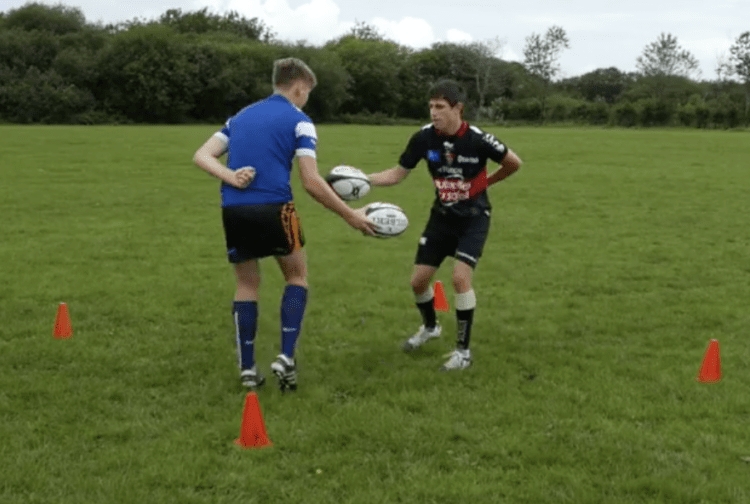
Get two players facing each other, both holding a ball. On your 'Go' both players are going to attempt to touch their opponent's chest with their ball. A little footwork will also come to play here as players try to get in close.
As an additional rule, if a player loses a grip of their ball and its knocked to the ground, they instantly lose.
Go for a set time limit, with players scoring a point per chest touch, or win by knocking their opponents ball down. This might need a few rounds to determine an ultimate Champion in your group, either by points scored or balls knocked free
In this article, we are going to discuss another way of creating competition, a Sports Day with our players as competitors.
A 'Sports Day' gives us the perfect opportunity:
- To create a competitive environment within our sessions.
- Provide us with a chance to carry out some covert physical testing of players which can be used to guide future session design.
- To analyse how our players perform, and if extra fitness work is needed, adapt our sessions to provide more physical stimulus.
We can also use Sports Day to test our player's skills. For example, how many times can a player hit a target with a pass in a minute. As long as you can think of a way to introduce a competitive element, almost any skill can be used.
Be sure to ask players on how they can improve their performance in any activity they carry out. Tie in the desire to compete with the desire for self-improvement.
Let's run through a six 'event' sports day. You might choose to run each event at the same time in small groups, or have different stations running different events at each time.
Make sure you record results from each event and crown a Champion of each and if you so choose, an overall Champion.
THE MARATHON
One of the most useful events you can do is to test the overall fitness of your players is to run a 20m beep test. You can compare the results against normative results for your age group.
Click here to find a score sheet.
Set out two lines of cones 20 metres apart then find a copy of a 20m beep test.
open.spotify.com/artist/54MkFWnHaqa1uWsHMpCmAy
Either use a speaker to play the test or as a coach blow the whistle on the beeps to mark when players should start the next leg.
If players fail to make it to the line ahead of the next leg, warn them they need to make it next time. If they fail to make it to the line twice, withdraw them and make a note of the level they achieved. The Champion is the player who reaches the highest level.
This will give you a good indication of the level of fitness within your team. Generally speaking, the more intensely you wish to play, the higher your level of fitness needed.

BIATHLON
Using a Winter Olympics classic, players will need to make accurate passes toward targets while also keeping on their toes to complete the challenge as quickly as possible.

Set up 3-5 balls on the ground with a player stood parallel to each ball.

The passer will then run up to each ball and pass it to the player standing parallel the ball. Choose the distance of the receiver to the ball and the type of pass used to suit your players.
Time how long it takes each player to complete the number of passes while giving penalty seconds for poor passes. Ideally, you'll complete this both ways to let passers work off both hands.
The Champion is the player who completes the passes in the quickest time.
KICK ARCHERY
A test of the accuracy of the kicking of players, adjusting the distances to suit your players.

Set up 3 rings of cones, a bullseye about a metre in diameter, an outer ring about 5m in diameter surrounding the bullseye, in turn surrounding by a 10m diameter outer ring.
Players kick from a distance into the cones. They score 5 points for getting the ball in the bullseye, 3 points for the next ring, followed by a point for the next.
Your Champion is the player with the highest amount of points.
SLALOM RUNNING
We're going to be testing our players ability to change direction quickly in this one. You can choose to run this as a time trial or a race.
Set up poles in the ground at varying distances away from each other, some close together, some more distant. Players aim to step their way through the course as quickly as possible before reaching the finish line. Add penalty seconds for any poles that are hit as the player navigates the course.
To add a bit more game specificity into this one, have players carry a ball as they traverse the course. You might add a further penalty for not carrying the ball in two hands.
The Champion is the player quickest to complete the course.
THE 100M
A straight foot race and one of the easiest way to settle debates about who the quickest player is on a team. If you're going to try and use the results from your Sports Day then you might want to time the participants, but be aware that hand timing is notoriously unreliable.
If you're struggling for space or it isn't appropriate for your players to run 100m you can easily reduce the distance.
You can create leagues and use shorter distances. So, five in the Premiership, five in the Championship and so on. Players can go up and down leagues after a couple of races.
The Champion is the quickest player. But there are also champions of other leagues.
RUGBY FENCING
A test of the way your players grip a ball might not sound the most thrilling event, but this take on fencing will generate plenty of smiles.

Get two players facing each other, both holding a ball. On your 'Go' both players are going to attempt to touch their opponent's chest with their ball. A little footwork will also come to play here as players try to get in close.
As an additional rule, if a player loses a grip of their ball and its knocked to the ground, they instantly lose.
Go for a set time limit, with players scoring a point per chest touch, or win by knocking their opponents ball down. This might need a few rounds to determine an ultimate Champion in your group, either by points scored or balls knocked free
Newsletter Sign Up
Coaches Testimonials

Gerald Kearney, Downtown Las Vegas Soccer Club

Paul Butler, Florida, USA

Rick Shields, Springboro, USA

Tony Green, Pierrefonds Titans, Quebec, Canada
Subscribe Today
Be a more effective, more successful rugby coach
In a recent survey 89% of subscribers said Rugby Coach Weekly makes them more confident, 91% said Rugby Coach Weekly makes them a more effective coach and 93% said Rugby Coach Weekly makes them more inspired.
Get Weekly Inspiration
All the latest techniques and approaches
Rugby Coach Weekly offers proven and easy to use rugby drills, coaching sessions, practice plans, small-sided games, warm-ups, training tips and advice.
We've been at the cutting edge of rugby coaching since we launched in 2005, creating resources for the grassroots youth coach, following best practice from around the world and insights from the professional game.

